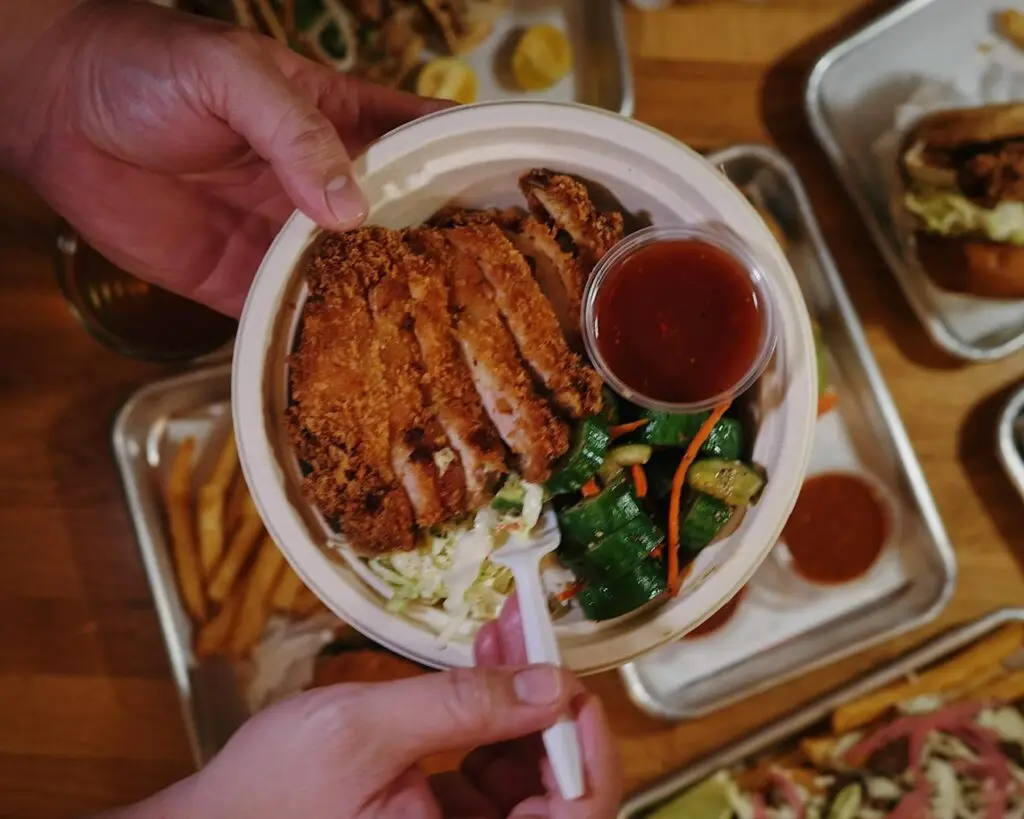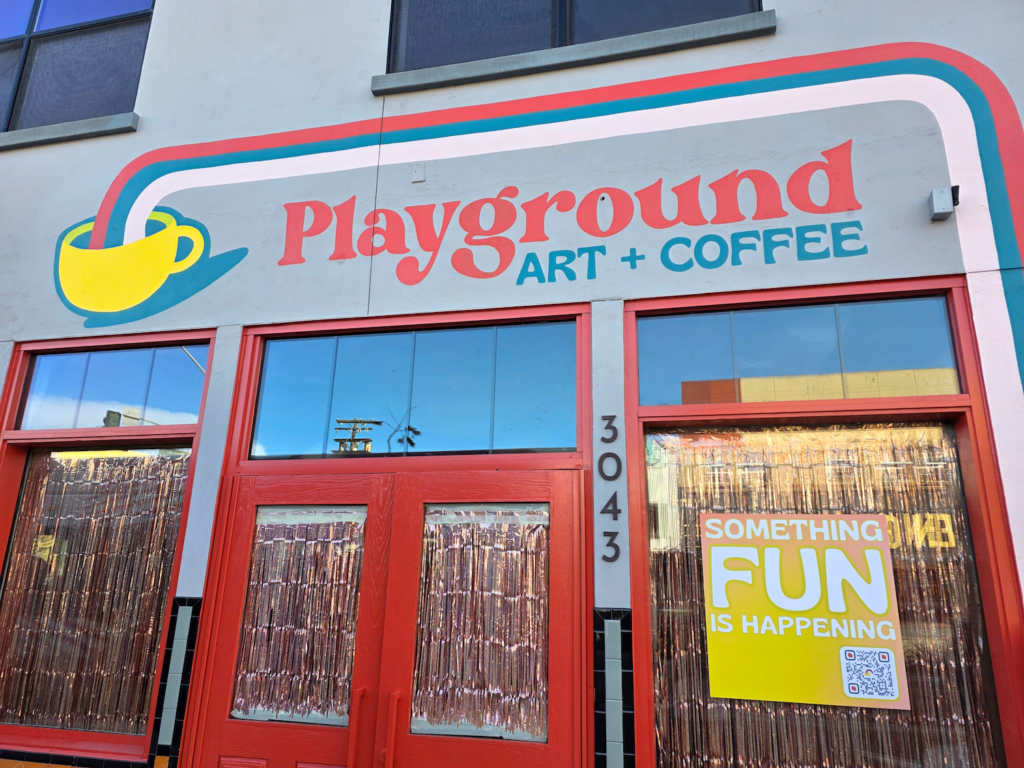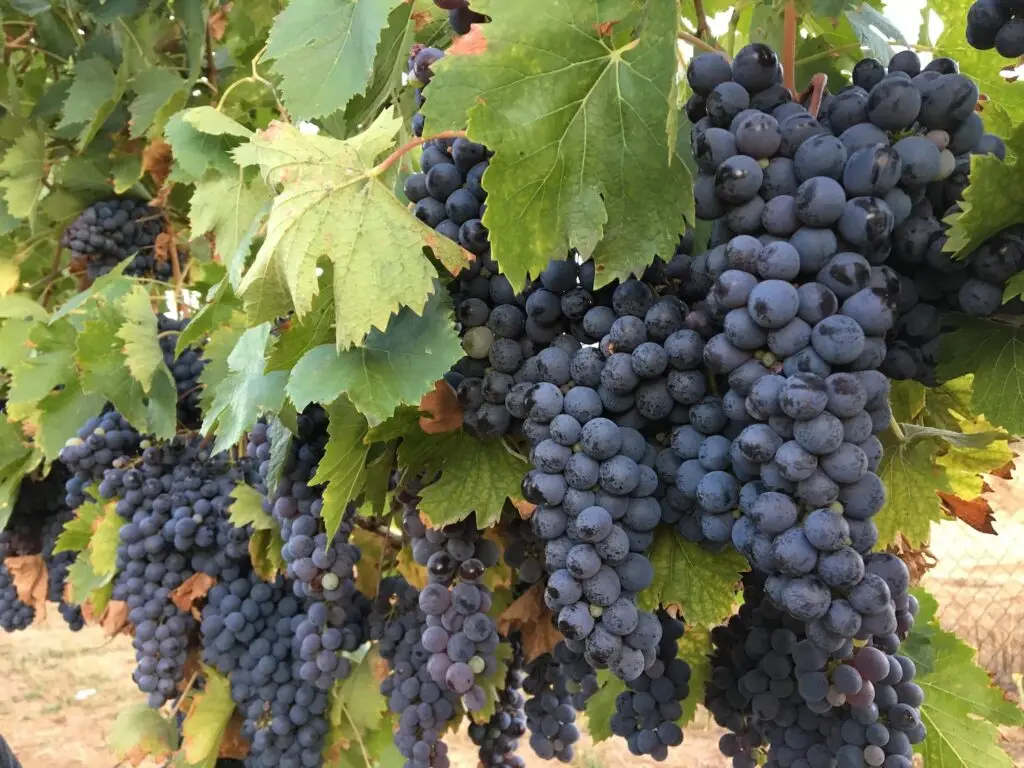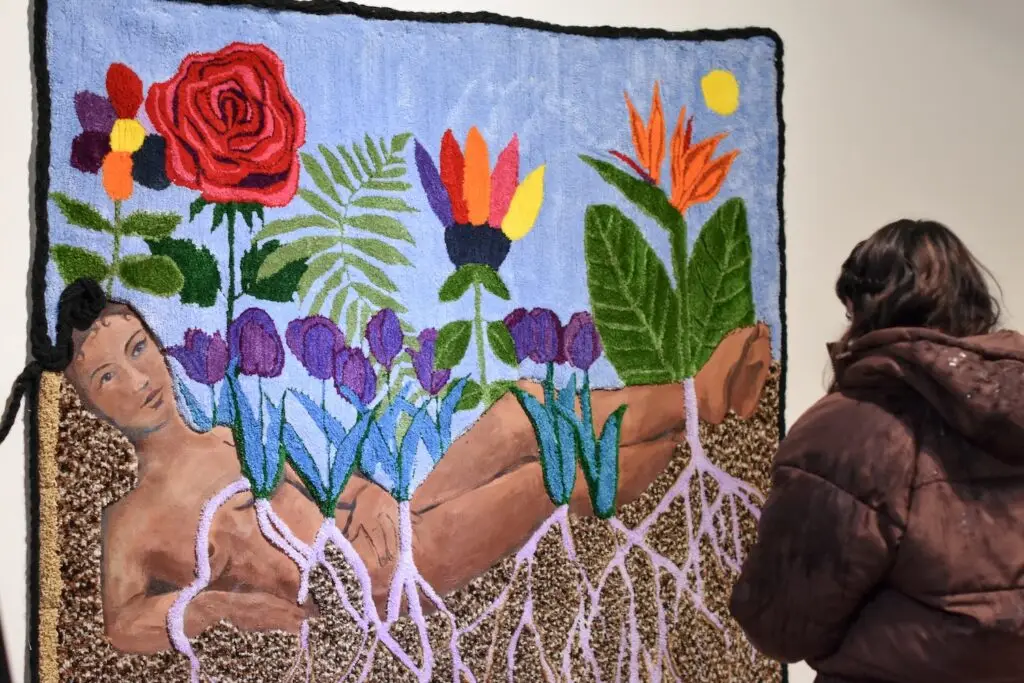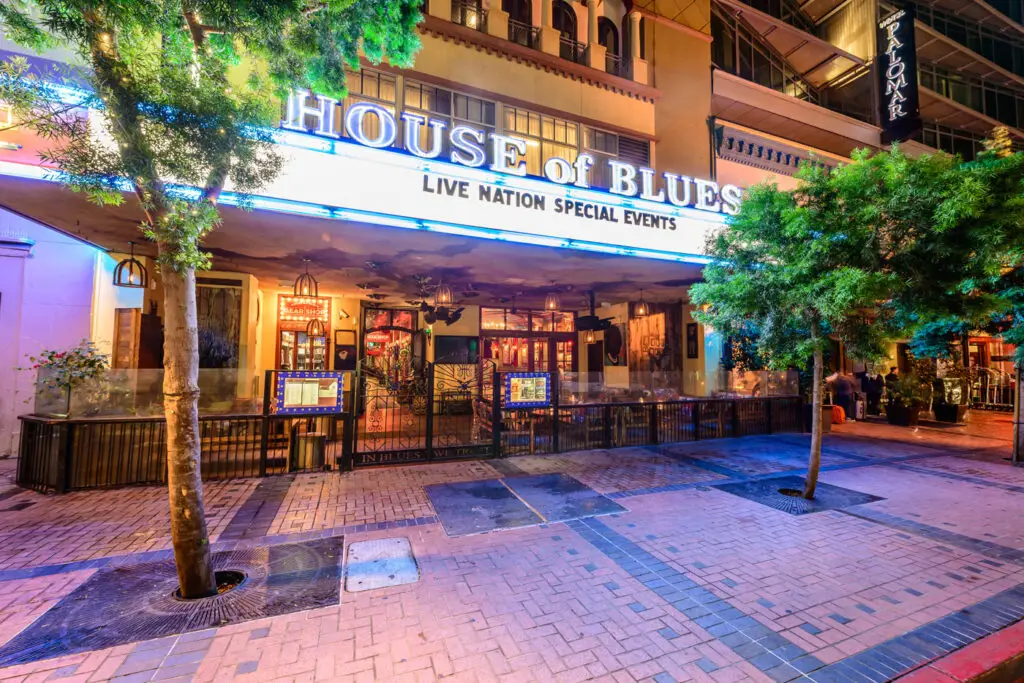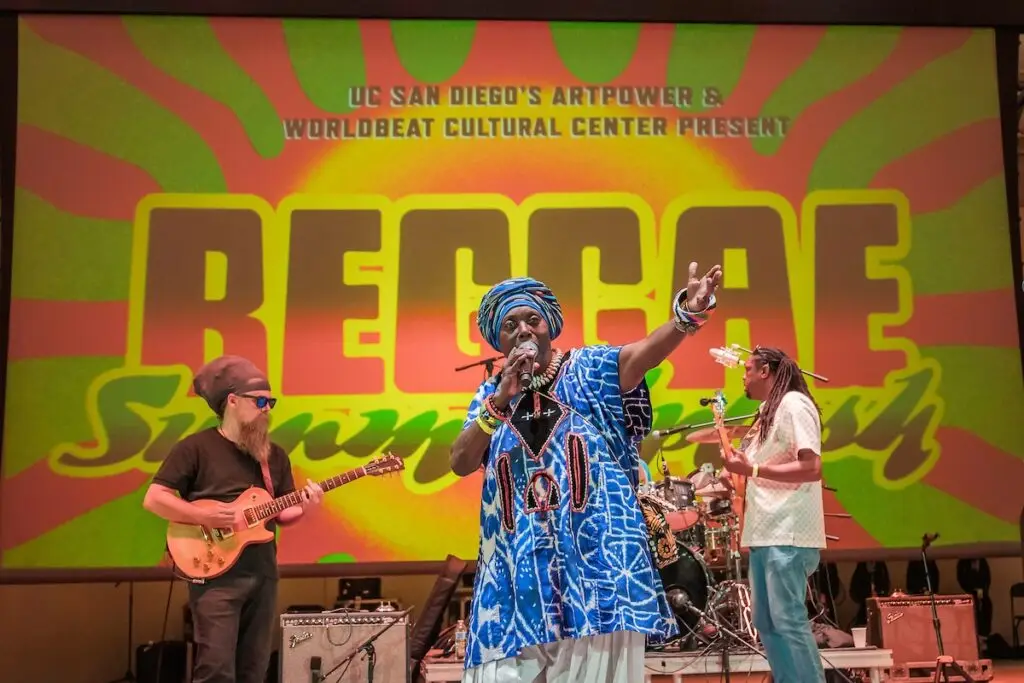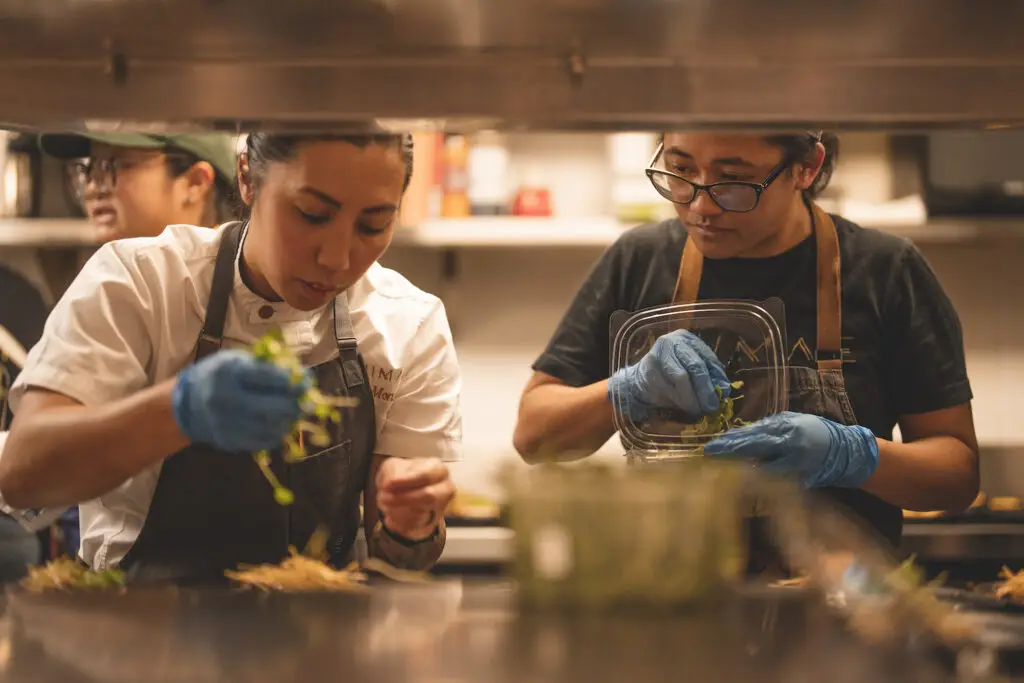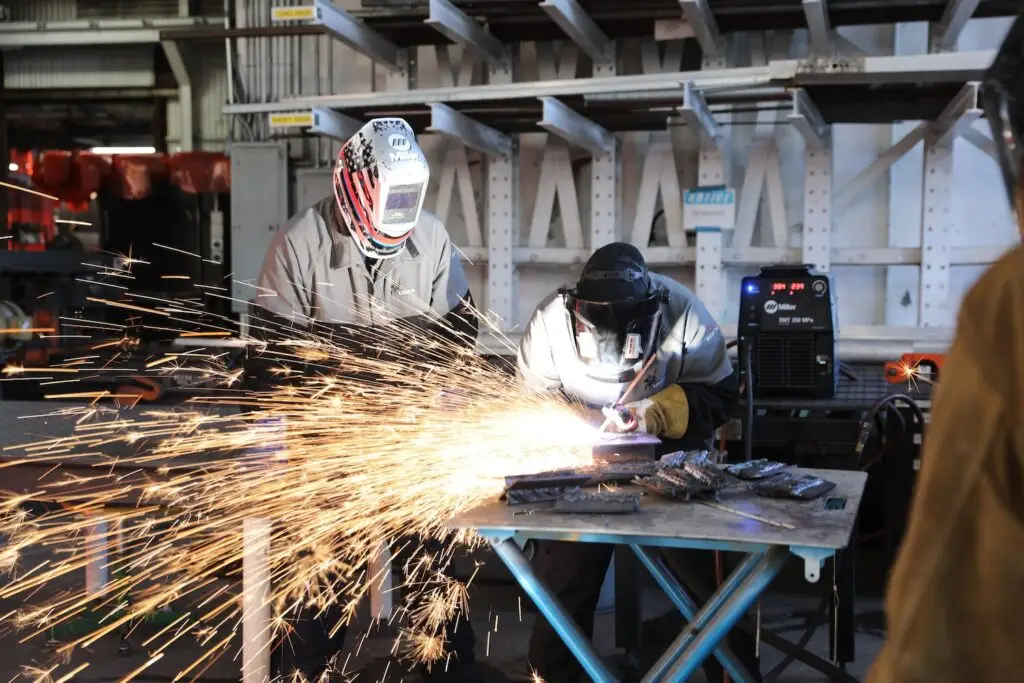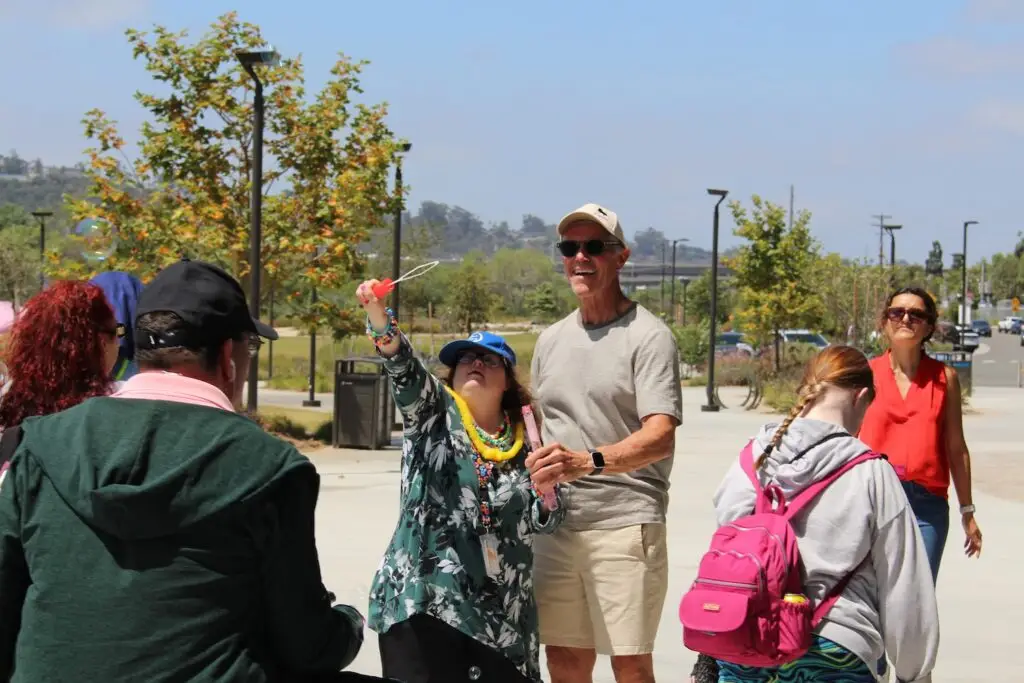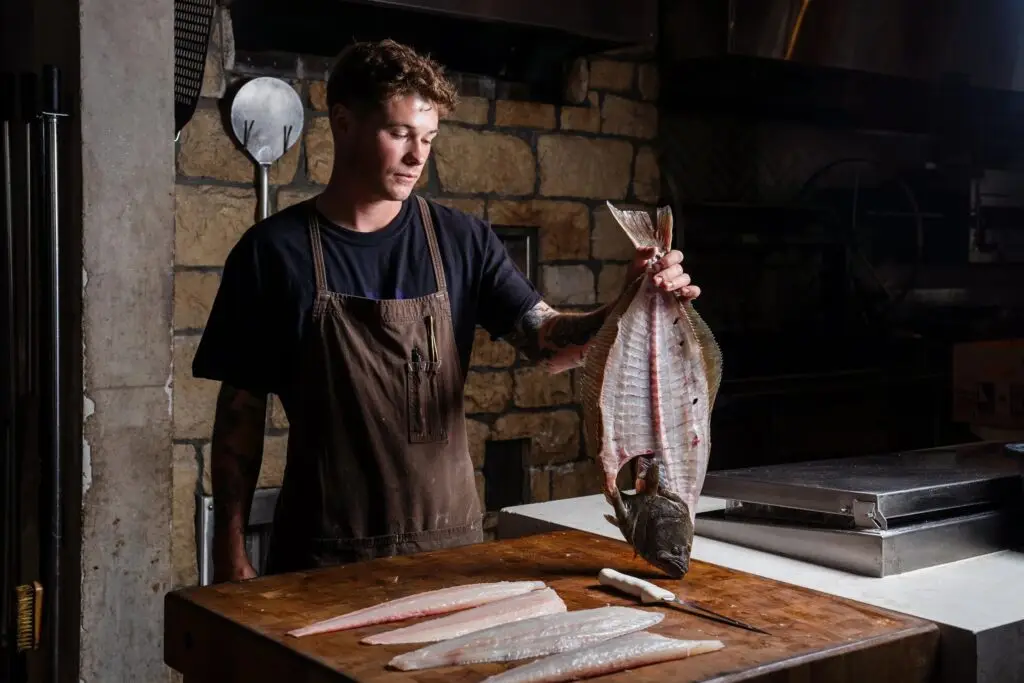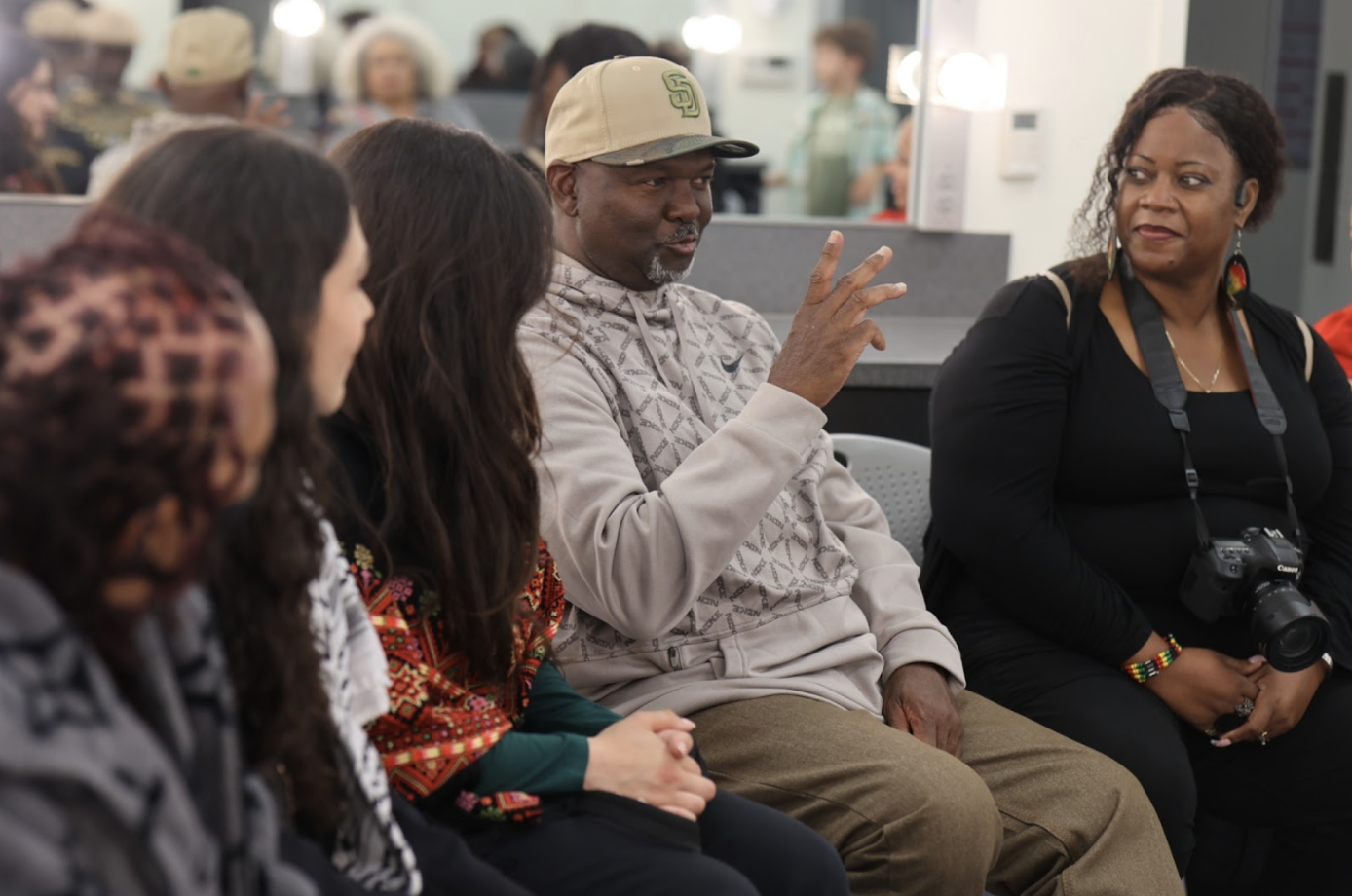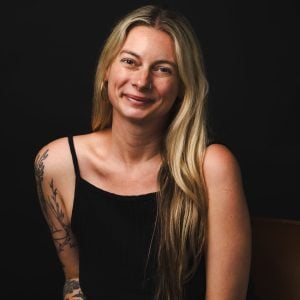Nearly seven months after historic flooding ravaged parts of San Diego, many residents are still grappling with the aftermath, with an untold number of people remaining homeless. Southeast, an area of San Diego that is predominantly Black and long plagued by infrastructural neglect, was among the hardest hit.
Since January, members of Pillars of the Community (Pillars), a grassroots nonprofit based in Encanto, have mobilized, offering critical aid where government assistance has been either slow or absent. In the early days after the storm, volunteer Ricky Weaver says that groups like theirs were the only ones with help available.
“When no one was there to help people process their traumatic experience, Pillars allowed us to go in and do the work,” Weaver says.
“Many families in Southeast San Diego struggled to cope with the aftermath. We provided emotional help and physical manpower, and whatever we had going on at the headquarters ceased. We focused on helping the people even when their city failed them in a time of need,” Weaver adds. He thinks their efforts in helping to clear flooded properties, rescue people, distribute food and other aid, and act as government and agency liaisons were crucial in those vulnerable moments right after the flood.
This ad hoc but effective strategy underscores Pillars of the Community’s unique role in Southeast. The organization is not just about advocacy; it acts as an independent community agency supporting people in times of crisis and with day-to-day needs, providing resources lacking from other institutions, including governments.
Pillars of the Community was founded in 2010 by local community leaders and activists as an advocacy response to systemic injustices that disproportionately affect Southeast residents, particularly concerning criminal justice. Since then, it has become a dynamic community hub providing court support, legal help, community organizing, and political education, empowering people to take on the legal system directly or make changes through civic engagement and policy changes.
A core Pillars belief is in the power of communities to heal themselves and take back control through community organizing and collective action, especially in areas like Southeast, which have been historically subject to over-policing and a lack of infrastructural, economic, and social resources.
Weaver has lived this himself. Since returning from prison a few years ago, he started working with Pillars, becoming a prominent community figure and advocate for youth impacted by the justice system. He feels “deeply personally” connected to Pillars’ mission, offering his journey from joining a gang at ten to where he is now as a testament to the transformative power of grassroots activism. He also credits his childhood involvement in after-school programs that taught the philosophies of the Black Panther Party and the US Organization, which he says laid the foundation for his lifelong commitment to social justice and “carried” him through his eventual prison sentence. He adds these experiences gave him “a deep understanding of the importance of organizing community members to build collective power.”
These deep beliefs led Weaver to activism. After prison, he returned to Southeast with a renewed sense of purpose. He joined with Pillars to provide support, however needed: youth coaching, probation support, court system support (including court watching), and work in policy change. He has also recently founded Grind2Gether, a new youth football nonprofit, with Wally Henry, a Lincoln High alum and former NFL player. The football camp accompanies mentoring talks with Weaver and his friends.
Weaver says he joined Pillars because he believes it genuinely provides needed help for Southeast residents and isn’t just lip service. “Pillars showed me the needs and inequities that exist in my community of Southeast San Diego, and they wanted to apply my lived experience to that need,” he says. “They are real people that pursue excellence in all they do, which is powerful to me.”
It’s not all smooth sailing, especially when facing decades of systemic inequity. According to Weaver, one of the biggest obstacles to working in community activism is navigating the bureaucratic red tape that often hinders the timely delivery of resources to those in need. “Knowing that resources are out there for people to fall back on, yet the red tape system is in place that holds the people back… It’s frustrating,” Weaver admits. Since Pillars relies primarily on funding grants and donations from the public, it’s limited in what it can provide. So, it pairs tangible support with education and mobilization, providing a pathway for the momentum to continue.
PARTNER CONTENT
Today, Pillars continues to work to get flood-affected Southeast San Diegans back on their feet while consistently hosting events, including workshops on legal rights, community health fairs, and town hall meetings focused on housing justice. In July, it sponsored a talk by activist and scholar Angela Davis at San Diego City College, discussing racial justice, mass incarceration, and the ongoing struggle for civil rights. Pillars also recently launched a donation-based community newspaper, All Rise, in collaboration with PANA and the Asian Solidarity Collective.
Weaver encourages those who want to work more closely with their community to look within: “Be willing to provide a service that you would want if you were in that situation. It’s your community. Be part of it if you live and exist in that village. Help others help themselves.” He and the other volunteers at Pillars of the Community strive to do just that in Southeast–its work is a testament to the power of community action.
